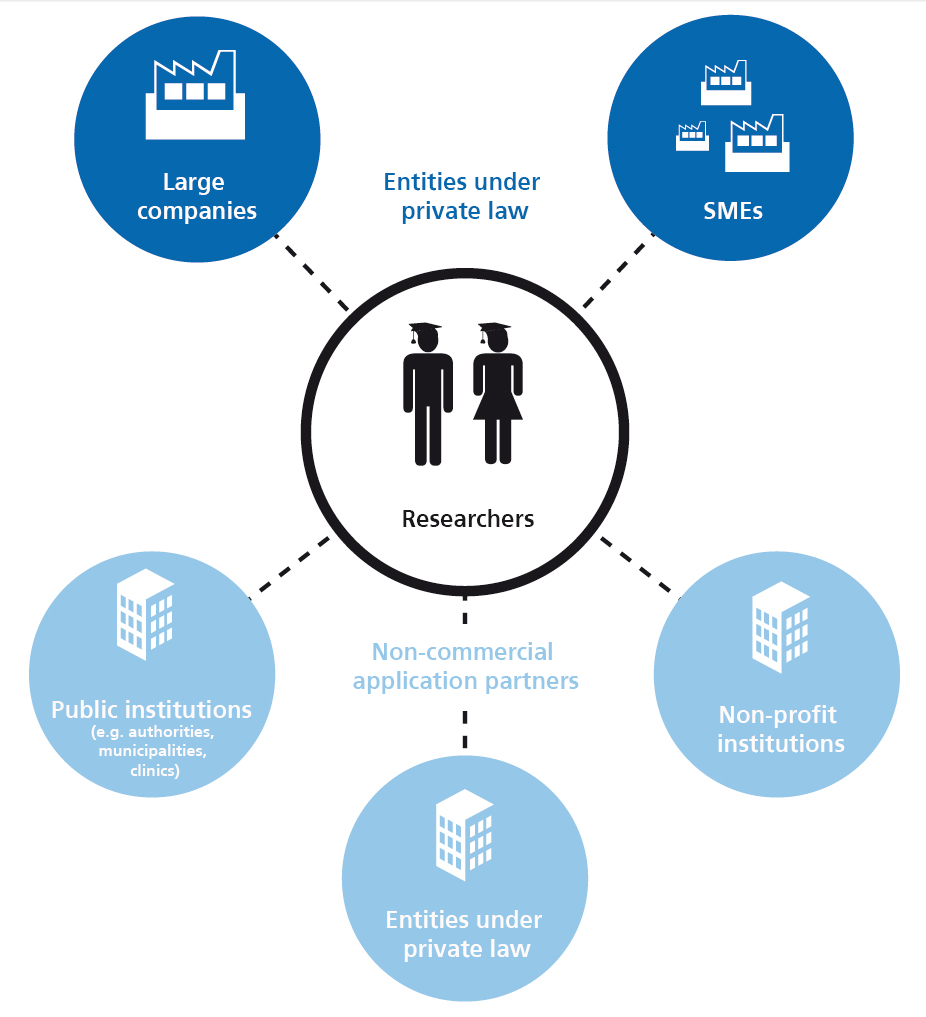Information on proposal submission
The requirement for submitting a proposal for a knowledge transfer project is that it builds on the results of a previous DFG-funded research project. If a proposal is to be submitted for a transfer project arising from a Collaborative Research Centre, see her(interner Link) for a summary of further information.
The applicant is usually the project leader (PI) of the DFG-funded research project on which the knowledge transfer project is based. If several PIs were involved in the preceding project, one of these PIs can also apply for the knowledge transfer project on their own, with the consent of the other jointly responsible parties. A staff member involved in the preceding project can also submit a proposal for a knowledge transfer project providing all PIs give their consent.
Application partners can be industrial companies/commercial partners as well as partners in the public sector/non-commercial sector. The application partner must make an appropriate contribution of its own, primarily in the form of expertise and personnel.
The core of a knowledge transfer project is a collaborative work programme pursued jointly by the scientific partner and the application partner which sets out the concrete tasks assigned to the participants (including the relevant share of working hours). This is to show that all partners are making an appropriate contribution of their own, especially in the form of expertise and personnel.
The proposal must be accompanied by a cooperation agreement between the applicant’s research institution and the application partner, in particular including regulations regarding the handling of outcomes, rights of use and publication rights. A model agreement is available for this purpose.
- Model cooperation agreement for commercial partner(interner Link)
- Model cooperation agreement for non-commercial partner(interner Link)
Further information
Contact
| E-mail: | erkenntnistransfer@dfg.de |
| E-mail: | erkenntnistransfer@dfg.de |
| E-mail: | erkenntnistransfer@dfg.de |

